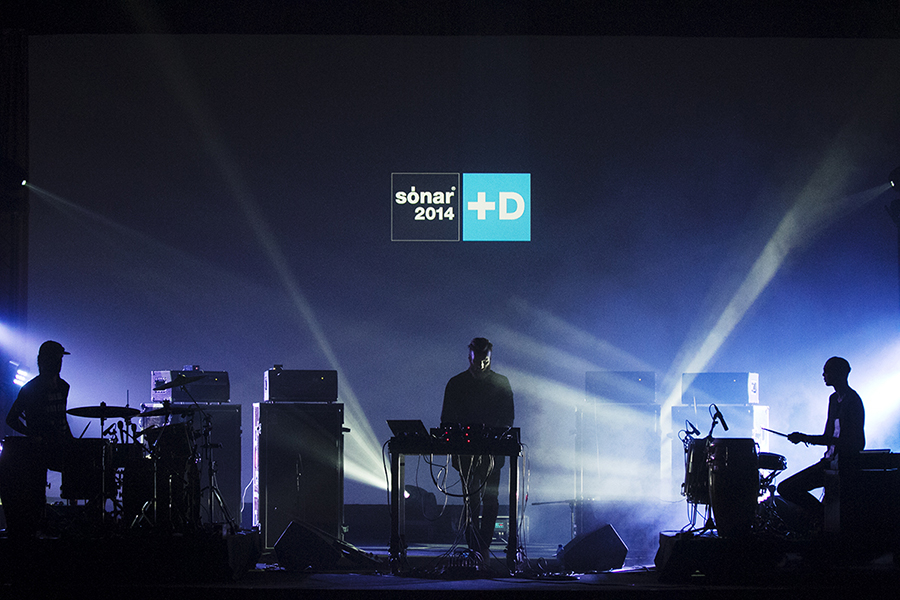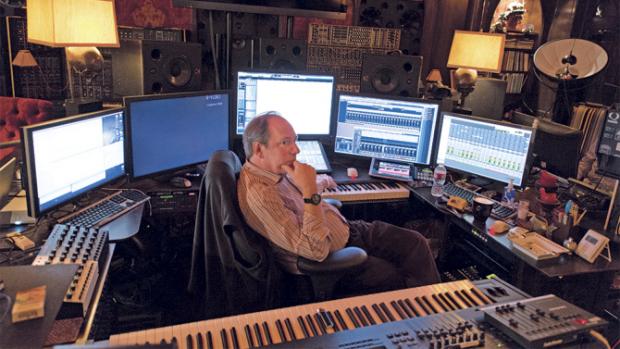This is part of a series of blogs about influences on Dark Land Light House.
Ben Frost at Sonar 2014
For me and Tim, sound and music are often built into the foundation of our ideas. Tim’s already written about how experiments with sound design gave him the way in to writing the script. More directly, we’ve been interested in music as something that could evoke scale and as something that could feel enveloping and overwhelming.
For DLLH we’ve been particularly drawn to:
Ben Frost
Richard Skelton
and Tim Hecker.
By chance, over the last couple of years we’ve had the chance to see both Ben Frost and Tim Hecker play live. It’s interesting to see how both those artists translate music that is inherently digital into vivid live experiences for the audience.
At Sonar 2014, Ben Frost’s set was completely pummelling. He played with 2 drummers, who faced each other at either end of the stage, so they could really coordinate. And the lighting design was triggered by the sound (in fact I think it was triggered by the drums, but I can’t find the citation). The whole thing was completely visceral.
When we saw Tim Hecker in 2015, he essentially filled the space with haze and dark blue light until he became invisible (though not before we’d all seen the stack of guitar amps that were pushing the sound out). This again helped lock us into the enveloping and physical experience of the music.
One of the things I find most interesting about these three artists (and I’m going to add Jon Hopkins into the mix here too) is that I perceive a real sense of something built through duration and accumulation in their music. There’s something of the ritual towards transcendence or disintegration in it, which I find really powerful in a storytelling capacity.
Beyond aesthetic influence, we’ve also been thinking about the way films scores tend to work. Music is integrated as a storytelling tool in film in a way that is much less common in theatre – perhaps because the formal parameters of theatre are so much more flexible, or perhaps because there’s a draw towards ‘authenticity’ in theatre that makes some people suspicious of the emotional welly of music as score. Thing is, to my mind it’s impossible for me to imagine the power of for example, Alien or Interstellar or 2001: A Space Odyssey without their soundtracks, so it felt like this was something we had to at least investigate for DLLH.
Hans Zimmer in his massive studio pondering on his Interstellar score (probably)

